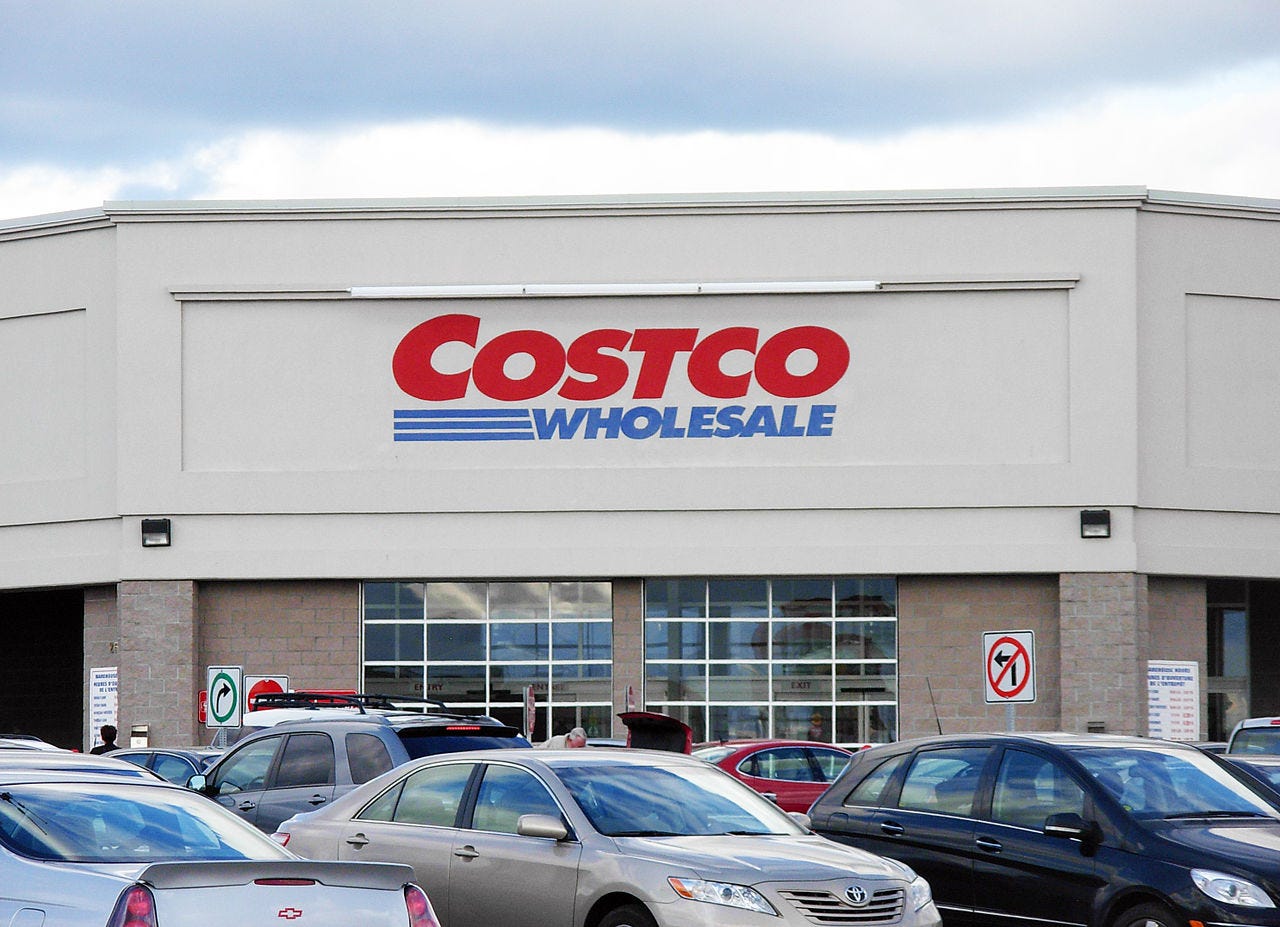Why Costco employees are happier with their pay than Facebook employees


A recent survey of companies with the top employee compensation and benefits was littered with tech companies, with one notable exception. Sandwiched between the Google and Facebook at the top of the list, based on employee reviews, was a company from an industry not known for good pay and perks. The industry: retail. The company that's more than bucking the low-pay trend: Costco.
Just take a look at hourly wages of some of the lowest paid workers at major retailers and you get a sense for how far ahead of other retailers Costco is at compensating its workers. Glassdoor, where employees can anonymously report salaries (the same company that conducted the survey), shows that the average salary for a cashier at Costco is $11.85 per hour. A sales associate at Walmart is bringing in an average of $8.85 per hour. The average hourly wage for cashiers at Sam's Club is slightly higher at $9.36 per hour. Target cashiers average $8.18.
Of course, that doesn't mean Costco employees are being paid like they work at a company like Facebook or Microsoft. The average hourly wage is around $21. That's not a lot considering that Facebook interns can make double what the average hourly worker at Costco makes in a month, assuming a 40 hour work week.
As Allyson Willoughby, Glassdoor's senior vice president of people, told SmartPlanet in an email, it might come as a surprise to some that Costco beat so many tech and high-paying companies in compensation satisfaction. "However, this list looked at overall employee satisfaction of the company's compensation and benefits packages, which includes factors beyond just salary like benefits packages and perks," Willoughby said. "It tells us the companies where employees are most satisfied with pay and benefits, not just which companies pay the most."
Some of those added benefits that Costco employees rave about, according to Willoughby, include health care plans, 401(k), free Costco membership, and overtime and holiday pay for both full- and part-time employees. It's nothing spectacular, especially compared to the plethora of perks employees can find at Silicon Valley firms.
It's all relative, however. If you're working as a cashier, you want to work at one of the few retail stores in the U.S. where all of those perks are available. Your satisfaction is higher when you know the alternative. For Facebook employees, perks are the rule, at their company and at competitors in Silicon Valley, not the exception.
But Costco doesn't just want better compensation and benefits for its workers. Costco President and CEO Craig Jelinek has been an outspoken advocate for raising the U.S. federal minimum wage. Last year, Jelinek said that the company pays all of its hourly workers a minimum-starting wage of $11.50 per hour.
But ultimately, Jelinek said in a press release from the advocacy group Business for a Fair Minimum Wage, providing employees with good compensation and benefits isn't necessarily for the social good, it's good for business.
"An important reason for the success of Costco's business model is the attraction and retention of great employees," he said. "Instead of minimizing wages, we know it's a lot more profitable in the long term to minimize employee turnover and maximize employee productivity, commitment and loyalty. We support efforts to increase the federal minimum wage"
But while Costco was the only retailer to make the Glassdoor list of companies where employees are happiest with their pay, it's not the only retailer where U.S. employees aren't taking to the streets to demand a raise. Willoughby told me there were three retailers that just missed the top 25 cutoff: H-E-B, Wegmans, and H&M.
Research seems to back up the approach these retailers are taking in regards to employee compensation. According to researchers who conducted a 2010 McGill University study: "Over the course of our study, we went from believing that it was possible for companies to improve their working conditions while being profitable to realizing that the companies we studied had increased their profitability by investing in their employees at the bottom of the ladder."
Photo: Wikimedia Commons/Stu pendousmat
This post was originally published on Smartplanet.com